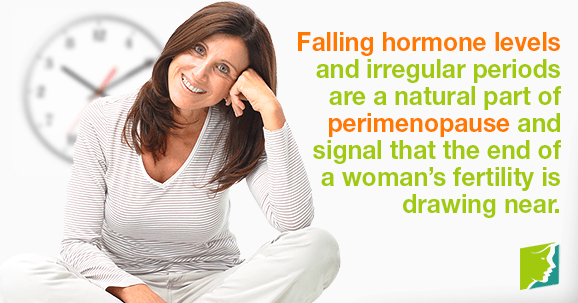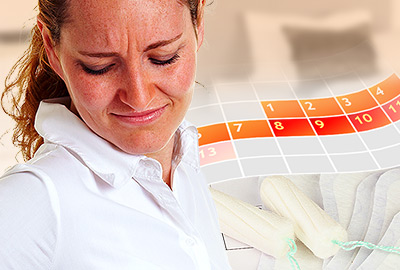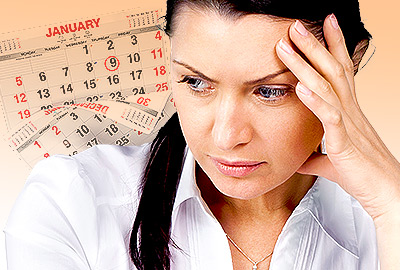Up to 90% of women will experience periods that are short or infrequent during their menopausal transition. The symptom is in fact one of the first indicators that a woman has entered perimenopause. While irregular periods are common side effects of perimenopause, they can also be confusing and stressful experiences. Read on to learn more about irregular periods during perimenopause.
Causes of Irregular Periods during Perimenopause
When the production of essential female hormones decreases, periods slowly become more irregular before stopping altogether. Falling hormone levels and irregular periods are a natural part of perimenopause and signal the end of a woman's fertility.
Estrogen and progesterone are the two hormones that are primarily responsible for regulating the menstrual cycle. Estrogen's role is to thicken the uterine lining prior to ovulation. Therefore, when estrogen levels become imbalanced, the lining begins to shed irregularly resulting in light or heavy bleeding, spotting, and infrequent periods.
When fertilization fails to occur, progesterone signals to the body that it must shed its uterine contents and prepare for menstruation. As progesterone production tapers, periods may consequently become irregular. For more information on how hormones affect irregular periods during perimenopause, read on to learn about fertility during the perimenopause phase.
Pregnancy in the Perimenopause Phase
Although it is uncommon, pregnancy can still occur at any time during perimenopause. As long as a woman has a menstrual cycle, she can become pregnant. Even if your periods have become lighter than usual, or absent for a few months, ovulation can still occur during the next menstrual cycle. During this time, women may also experience anovulation. Anovulation occurs when a woman has a period, but her ovaries do not release an egg.
When to See a Doctor
It is always a good idea for women to schedule a visit to see a doctor if they experience irregular periods and other symptoms associated with perimenopause. Women who are experiencing heavy bleeding, extended bleeding (i,e.,more than 7 days), bleeding after sex, abdominal pain, or odorous discharge should consult a doctor immediately.
Recommendation
Irregular periods can be a bothersome symptom of perimenopause. Women seeking relief from the symptoms of irregular periods may consider treatments such as lifestyle changes, herbal remedies, or hormone replacement therapy (HRT).
Sources
- Hutchinson, Susan M.D. "The Stages of a Woman's Life: Menstruation, Pregnancy, Nursing, Perimenopause, Menopause". November 2007.
- Love, Susan M.D. Menopause and Hormone Book. New York: Three Rivers Press, 2003.
- BMJ Group. "Menopause: What is it?" Patient Leaflet. 2007




